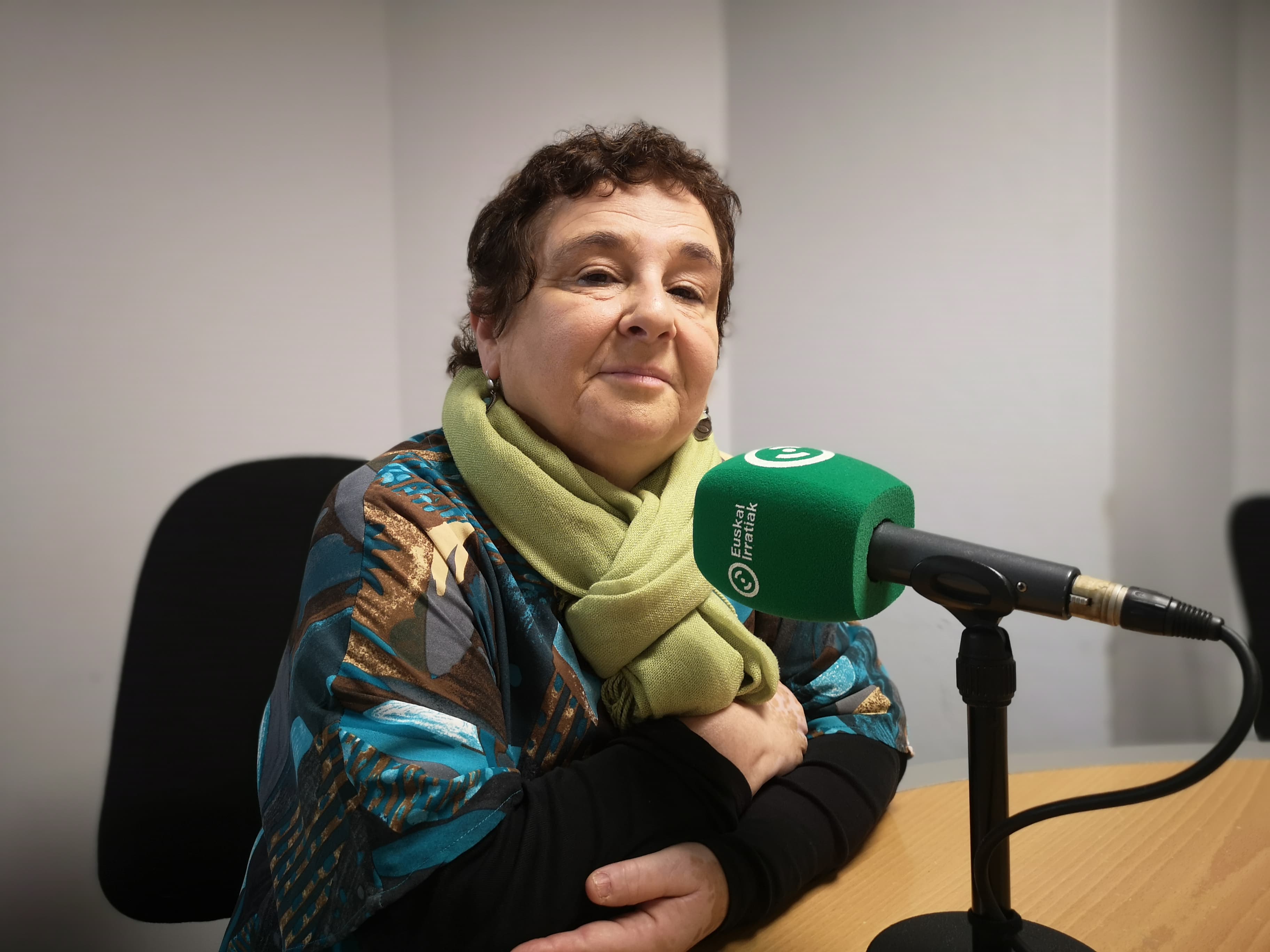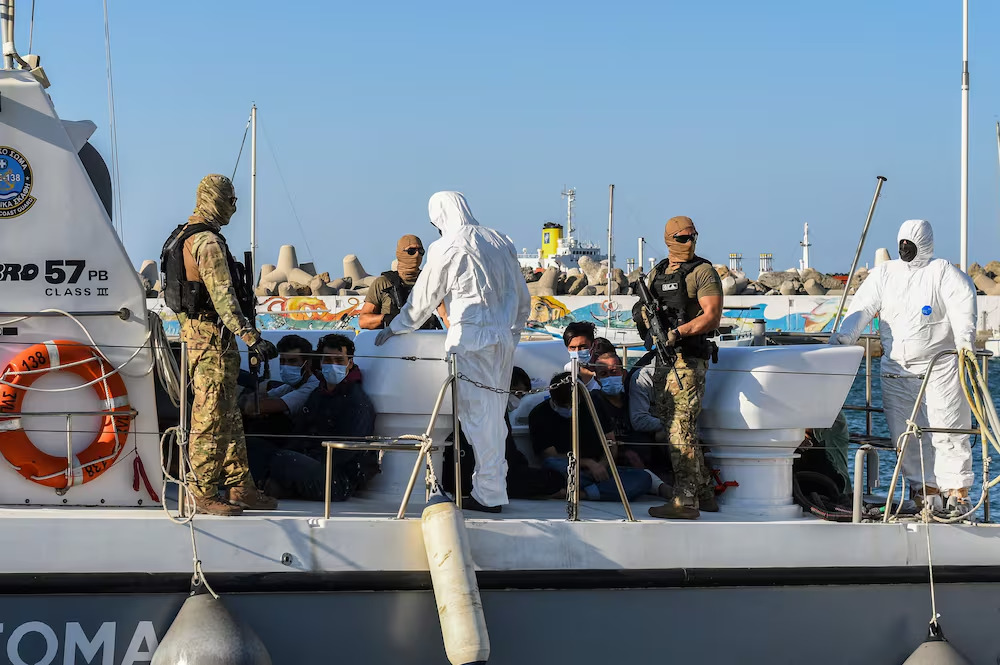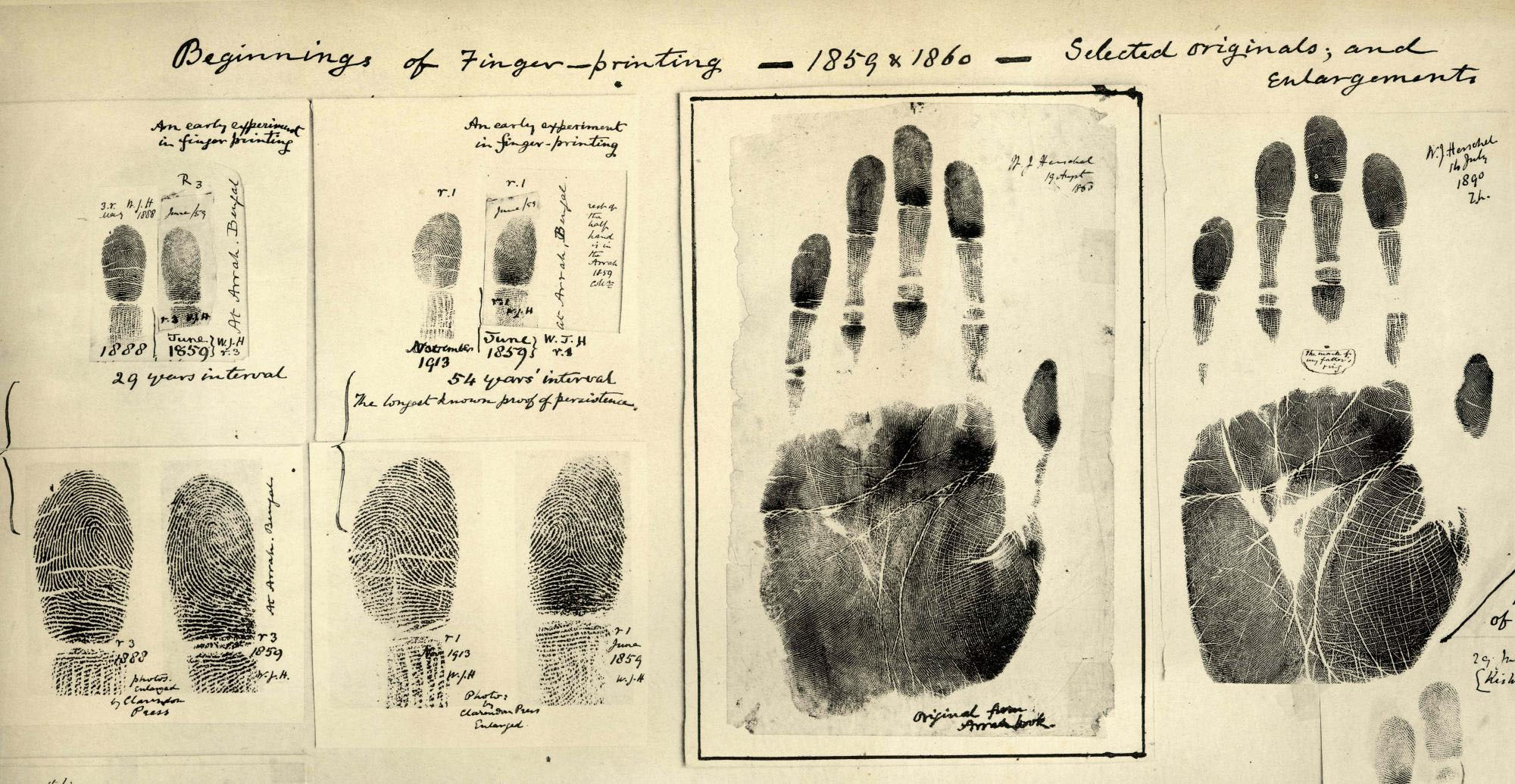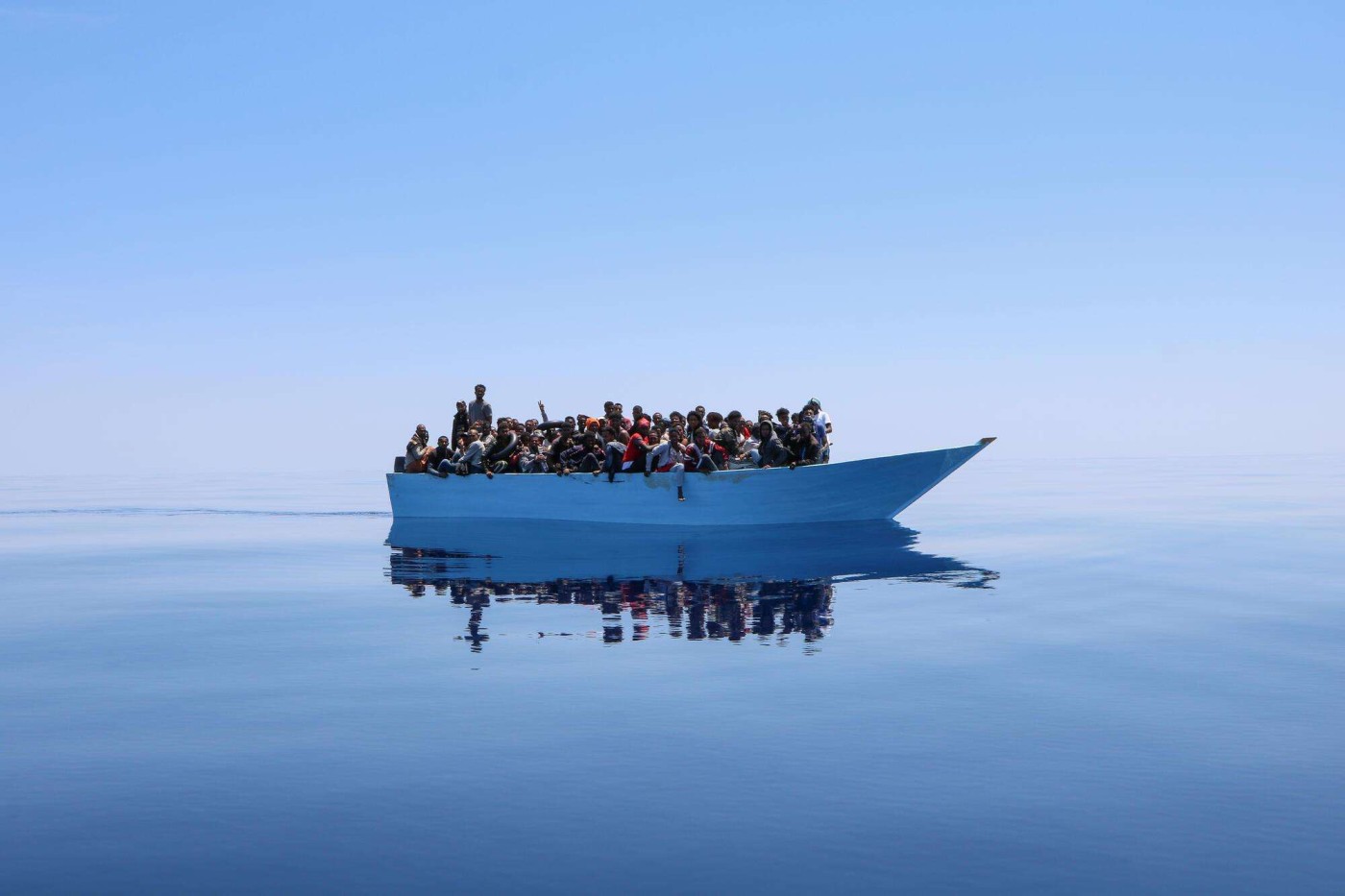Art of the Muawardis
- The census shows that 750 people live in Bizkaia, surrounded by green landscapes of Arratia and villages and towers of the old root. It's got a square as small as it's full of life. In a corner, in front of Maurizia's image, the village's elders tell stories. In the store next door, Xsaqari tells her brother that the woman is arranging her clothes. You've got the Algerian girl in front of you, the Georgian friend when she's going to get off the slide. And in the bar, the Peruvian waiter has passed on to the Mexican cook the bread produced by his Amaziga colleague for the Palestinians, Pakistanis, Colombians, Gambians, Basques, Malis, Moroccans and Somalis who wait for them to eat on the top floor. A normal afternoon at the Sale of the Artea Town. An unparalleled life project in Europe.
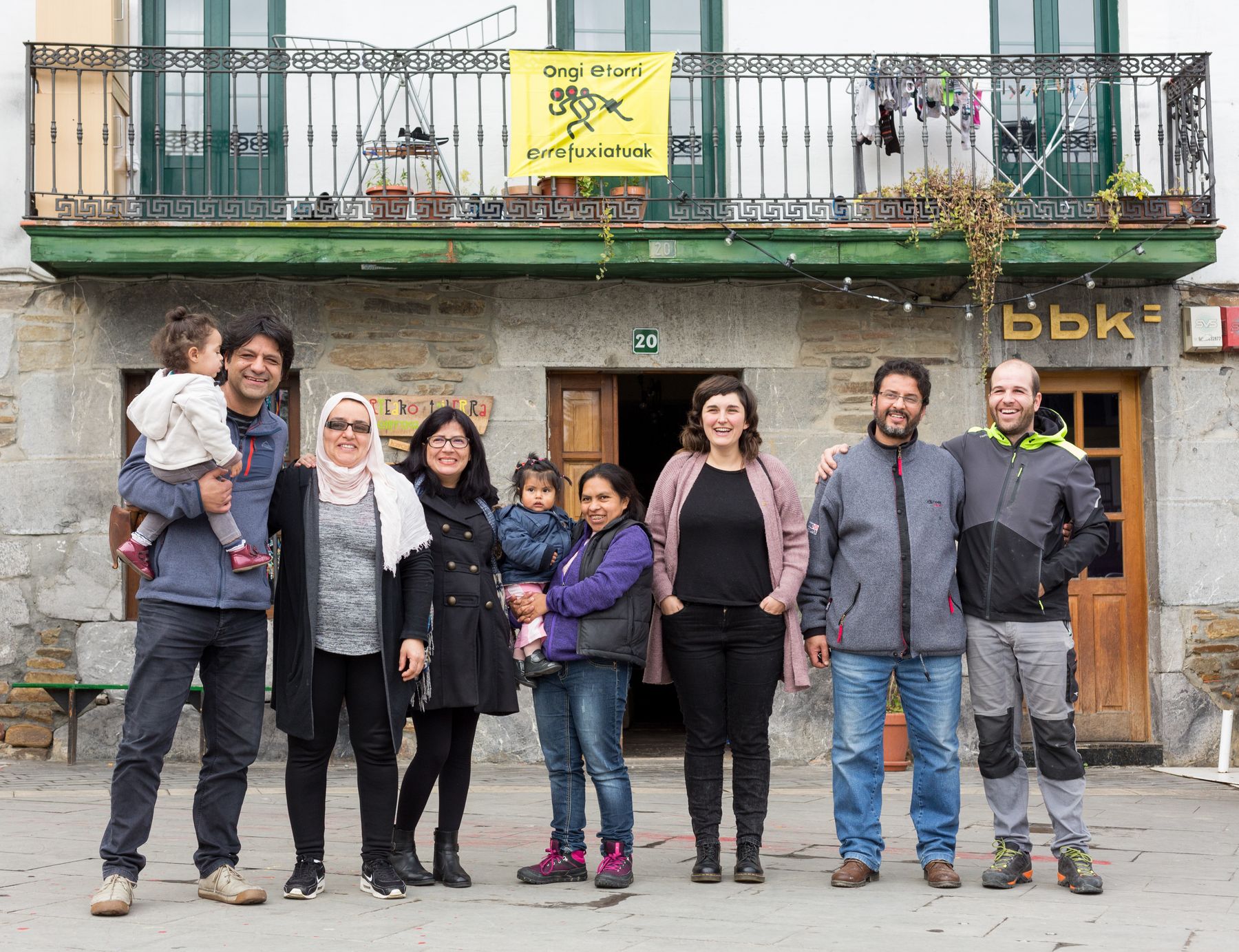
“We have managed to overcome the barrier. We are accompanied by a Nigerian woman and an autistic son, along with other friends who have just passed the Mediterranean as a kicker. Each week we repeat a journey like this, as do other solidarity networks, such as the Mupremio de yesteryear.” This is one of the dozens of experiences that friends of the Artea Network have experienced in recent years. In addition to being aware that moving freely around the world is a right, they carry it into practice. “Let us disobey the system to practice obedience to human rights.” We know it, but the peculiarity of Artea is that, in addition to expressing it, they do. “We take every week to the people where you want and help those who decide to stay here to get papers and to provide tools to develop a dignified life. Without claiming, we do, and period.” Mikel Zuluaga, one of the creators of this project, speaks. “Before the global crisis we brought people, but the creation of the Ongi Etorri Errefuxiatuak initiative extended our capacity and capacity.”
In 2016, the City Council of Artea launched a competition to rehabilitate a building in the town square. They presented theirs and won the award, and with the sweat of many citizens and solidarity, they conditioned the building to offer a safe and comfortable space to the people who need it. It's called Herriko Benta Tea. Besides housing dozens of migrants, it is a space to self-manage the project and offer passersby a work solution through a bar workshop, restaurant, accommodation, trade in local products and clothing arrangement. In addition, there is a bread and pastry worker in the area.
They have rented the next house for sale, intended for those who have decided to live here, and another building of the locality, used for those who wait for them to move. They also have a direct relationship with different spaces outside Artea: some for rent, owners who have shared voluntarily and others have occupied. In some neighborhoods of Bilbao, such as Zierbena, Gernika, Arrigorriaga or Amorebieta-Etxano. They don't want to grow any more, they've opted for decentralization, because they're generating more similar experiences. “As long as banks have hundreds of empty homes and people are sleeping on the street, the occupation will be illegal but absolutely fair,” says Urruñesa lawyer Olatz Talabera, a network member who is creating a space for migrants in precarious conditions in Amorebieta-Etxano. After learning about the experience of Artea, they began for 15 years to occupy a building abandoned by a bank and to adapt it in auzolan (painting, obtaining furniture, renovating floors, cooking and toilets…).

Currently, between 70 and 80 migrants live. More than half are women and one third are children – about 20. They belong to about fifteen peoples, each with their language, their beliefs and their customs. More than where they come from, the present does. Some are learning, others are working, and most are waiting for them to head towards the next stop of their journey. Thus, in the last two and a half years they have rescued, supported and “revitalized” a large number of people from exclusion. That is the word of Yolanda Oquelí, Guatemalan. “I was surprised to find this project that brings together a human rights defender, a migrant or a person who has had to leave their homeland by force, from the front, without hierarchy. Not judged by its origin, past, language or skin color. It has allowed us to live again, because we did not live in our people, it was a constant persecution. Seeing my children growing up has no price, because in Guatemala the tension did not allow them to grow, they could not even go to study for the kidnapping attempts they suffered because they were my children. Mikel says that solidarity is a small word, but if we assume it in its entirety, the consequences are gigantic.”
Like Oquelí, some members have a more political profile, others have left their homes for economic reasons, gender harassment, disaffection… “They are all legitimate,” says Malu Egiluz, a relentless farmer from Zeanuri and one of the pillars of the project.

The living room, the washing
machine, the coffee maker, the refrigerators, the food store… all open, everybody and without padlock. People waiting to return are guaranteed room, breakfast, food and dinner, as well as classes for children. Those who have decided to stay in the Basque Country also have a kitchen in their homes, and those who do not have a job, receive a weekly basket of local products. In the case of the latter, “the important thing is to offer them tools to not depend on anyone and to live with dignity, that is, we try to offer them the possibility of working for themselves or studying a profession, and regularize their situation, especially in obtaining work and residence permits”, Egiluz stressed.
They've formed a diverse and changing human team. Many of them have gone through many traumatic experiences. How have they achieved spaces and environments of respect without hierarchical control?
“Everyone who comes here the first thing we tell him is to leave out the negative accounts he brings in the backpack and just come in positive,” says Zuluaga. They have attached great importance to creating a climate of trust from the outset. They insist that mutual care at the forefront is for them to make policy. In Zuluaga’s opinion, the key is that we are all equal in everyday life. “There is no hierarchy, but there is power, because they see us as a model of spoils. Why? If the migrant goes to a public institution, they don't listen to him, but it's different me, a white man, if I leave. There is the figure of power. Our mission is to overthrow that power. And that's only possible on a day-to-day basis. When they see you making stone, cleaning the bathroom… it is working from the lack of power.”
And to do so, they do not give importance to the waste of forces to organize themselves continuously. They do not hold many assemblies, only when there is a need to deal with specific issues. “We do not want to create any other organization or organization chart, but to devote our forces to working and sharing environments of trust. Of course, problems arise, but like those that happen between neighbors and co-workers, linked to everyday life: someone complains that someone else leaves the bathroom in underpants, because the pig washes less than the watermelon… and so on.”

Zero machismo, zero racism In all
communities there are always elements that fulfill the function of ligament: religion, culture, ideology… They say that art is a social essay, because the common ground of its members is very different. “For example, I am not a believer, but I understand that I am someone. Therefore, our common land is secular, because we all understand that we should not change the other, for example, so that we stop being Muslims or agnostics; the idea is to create a space from normal,” says Zuluaga.
But there are two issues, two “structural problems” in which the collective can intervene: racism and machismo. “Many people come with records that are not ours, we know what the male of machismo is getting around the world, starting with us. And in order to ensure mutual respect, we must work on machismo. Also racism, but on another level, and above all class racism.”
It helps and denounces, with the help of the NGOs maintained by the governments, the public spaces that give food and bed, the charity of the various devotees… Although the topic of migration has a
profound and obvious political root, it often appears linked to uncritical assistentialism. In art, they don't understand help without making a denunciation and a political critique to those who create the problem. “A lot of people are coming up with compassion, but the question is how we get those people to join the whistle as well. So that they don't just come and bring their clothes to them, but that they understand the reason. We must prepare ourselves as a people for long-term solidarity. Because people are going to come here, yes or yes. Therefore, it is better that we do so with cordiality and kindness, with solidarity, from an internationalist perspective”.
The “alternative school” they have organized could be a practical example of such an approach. For example, those who do not have a passport and are waiting for them to move cannot enter their daughters and sons in public school. Therefore, “like the State, the public institutions, do not respond to this reality, we, the social movements, have filled that gap”. A classroom at the House of Culture has become a school. They hold three-hour sessions daily, with two educators and two parents. Rather than formal education, it is about providing children with a safe, enjoyable and fun space. Today, about twenty boys and girls from different backgrounds make up this small tower of Babel.

“We used to be
in Barcelona and everything was different. Here neither I nor the children have noticed contempt or racism. It may seem like an insignificant matter to you, but there are people who knock at the door of the house and tell us what has come to us, ‘Yolanda, look, if you need something, here I am by my side’. Not knowing almost who we were, simply because we had just arrived… The woman from Côte d’Ivoire who lives with us is also surprised that no one has denied her sight in the neighborhood and in the plaza.” Oqueli’s experience summarizes the atmosphere of respect that has presided over Art. Marta Chuk is also very grateful for the reception of citizenship. “In the people they have received us without prejudice. They've known us as we are, without staying in the story behind us. In my small tent on the plaza, the multitude of children from the town gather around school, and no parent has even said “don’t go there, it’s different people.” On the contrary, they have helped me.”
Zuluaga has immediately warned that the xenophobia that is sleeping lives in all the peoples and in all of us, and that that is why mutual respect must be continuously worked out, because it is something that can be easily broken. “These times, unfortunately, are not the most appropriate. It thrives on fascism across Europe,” adds Egiluz. “Fascism is well built. The phrase ‘Natives first’ is as hard as it is powerful. But it’s not the same to think ‘What makes that black in the kitchen!’ or to express it without objection.” The legitimacy and cumulative strength of the project have an impact on this issue. “Maybe not everyone will look good at us, but I’m sure they won’t take the step of coming and talking bad about us either,” Oquelí says.
They all stress that the connection between saying and doing has been fundamental to the success of the project. I heard a word about this idea. “Mikel couldn’t claim respect if he didn’t practice it on a daily basis. The local people who have driven the Artea project have been an example, what they say they put it into practice and that has had a lot of influence on the rest. The people of Artea are an example and the Artea project is an example for the whole of Europe.”

"Segurtasun gehiago, inmigrazio gutxiago". Bruno Retailleau barne ministro frantsesa argi mintzatu da, kargua hartu berritan. Etorkinen gaineko kontrola azkartu nahi du Michel Barnier lehen ministro eskuindar-kontserbadorearen gobernuak, eta jada Retailleauk aitzinatu... [+]
Europar Batasunean berriki onartu den Migrazio Itunak, asko zaildu dizkie gauzak euren herrialdetik ihesi doazen eta asiloa eskatzen duten pertsonei. Eskuin muturraren tesiak ogi tartean irentsita, migratzaileentzako kontrol neurri zorrotzagoak onartu dituzte Estrasburgon,... [+]
Migratzaileen kopurua anitz emendatu da Irun eta Hendaia arteko pasabidean. Irungo Harrera Sareak ohartarazi duenez, otsailean 600 pertsona lagundu dituzte, iaz, urte osoan 2.700 izan zirelarik. Iragan urtarrilean, 2.700 etorkin heldu dira Kanariar Uharteetara, egunero 80... [+]












